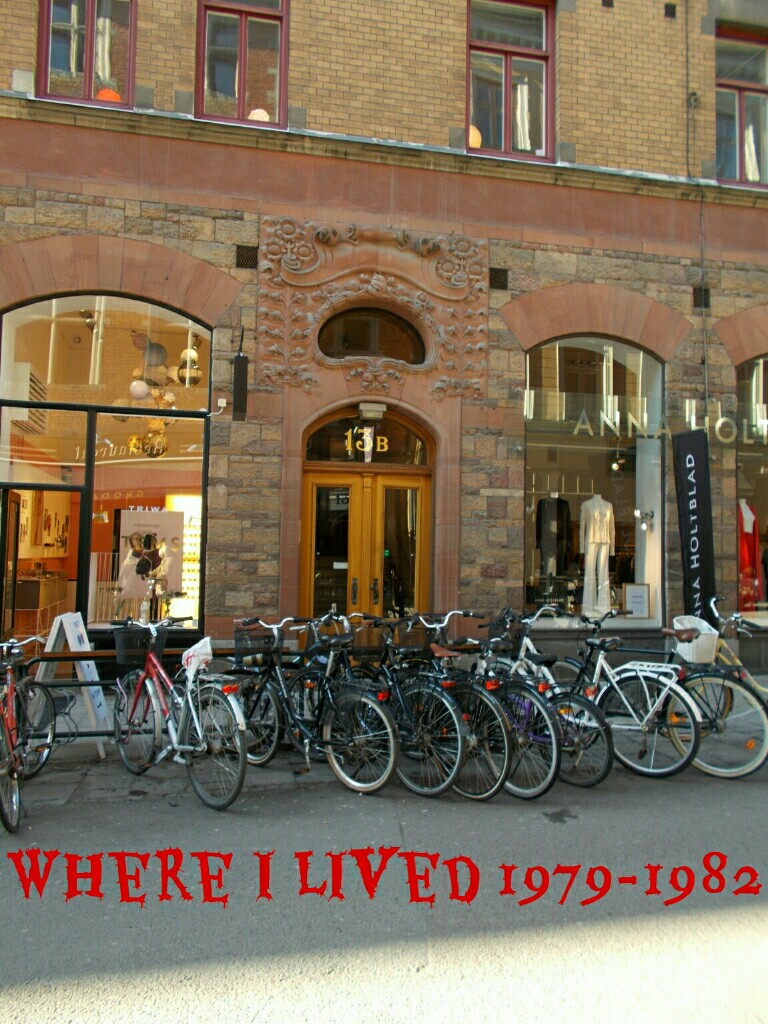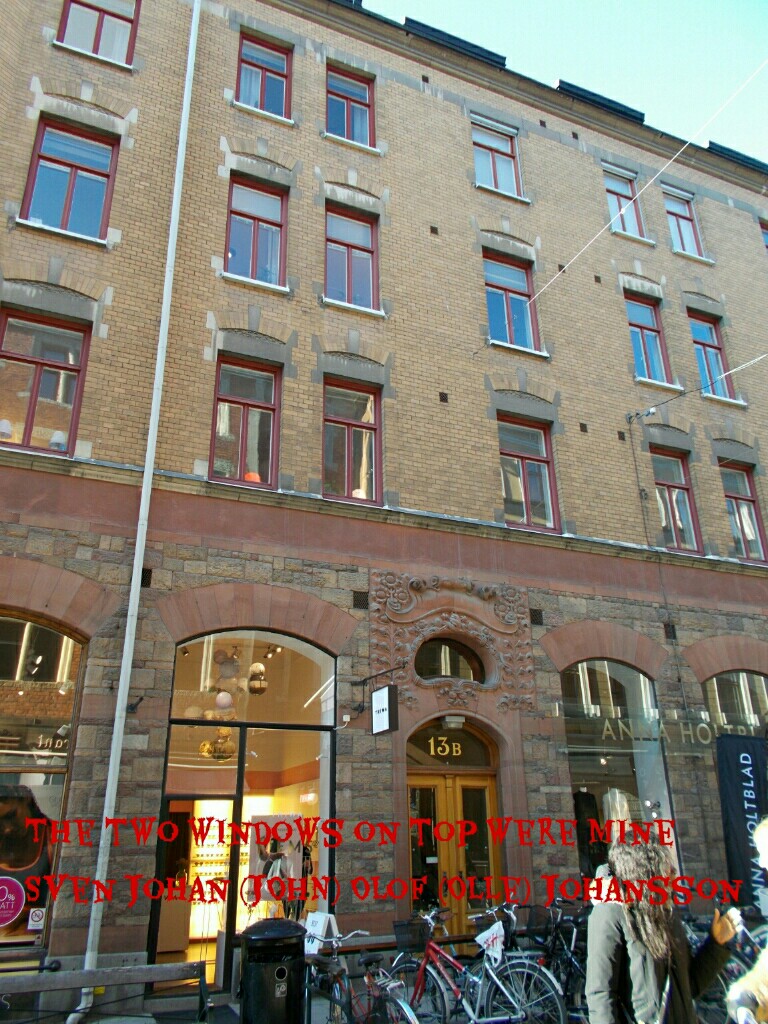Charles de Gaulle and the Six-Day War
Thursday, November 11, 2010
This piece of poetry, art and culture has yet not been published. Today 9 November 2010.
Tyda.se, Google Translate, Dictionary.com & Wikipedia.org/ have been a big help in translating.
I did read a book last Winter by the Swedish journalist Knut Ståhlberg, a reporter for the Swedish Radio and Television, situated in Paris since the 1940-ties. He was born in 1919 and is now 91 years old! I remember one day in Stockholm 1980 or 1981 in the summer when I looked out of my window on the 4th floor at Grev Turegatan 13B, down on the pavement stood Knut Ståhlberg and studied the nameplates by the front door. I assumed he had read some of my satires.
Knut Stålberg wrote a book published by Norstedts Förlag in 2005, ”De Gaulle, the General Who Was France”. There is one chapter called ”Israel and Que’bec”, where Knut writes about important details explaining a factor, why Israel was so successful in the six-day war.
Knut Ståhlbergs book is as I know only edited in the Swedish language. The whole of quotations in this article is translated by me, Olle Johansson, and therefore not perfect, but easy to understand for any English understanding person. I hereby want to mention that people who think they are so smart and still don’t know facts, politicians, journalists, common pundits, etc. what are they in the game for? Ff..!
Here follow the Quotation from Knut Stålbergs book. I do this as a salute to Knut Stålberg and the General de Gaulle, but without permission.
”The Six-Day War
States have no friends, according to de Gaulle. The relation between France and Israel was an exception. It started already in London where de Gaulle and The Free France Forces (FFL=Forces Françaises Libres) maintained contacts with the Sionists and the Warriors for a free and independant Israel. It was together with de Gaulles free Frenchmen that Moshe Dayan during a battle with the Vichy French troopes in the Middle-East (Syria), had lost one eye.
France had become the prime provider of weapons to the New State of Israel. The war in Algeria had strengthened the cooperation between the two states and further deepened after the Suez Crises in 26th July 1956. The General Staff of Israel and France went along hand in hand.
French and Israeli nuclear physicists cooperated. France delivered uranium which was converted into plutonium at the plant in the Negev Desert. When de Gaulle came back to power in 1958 he though suspended the atomic cooperation that obviously had the creation of a Israeli nuclear weapon as an aim. But as repayment he increased the military supplies.
France sold 72 Mirage III Fighters to Israel in 1961 and contract was signed for further 50 Mirage Fighters to be delivered in 1966. Additional to this came deliveries of helicopters, torpedo boats and French tanks.
Already the first time after de Gaulles accession to power in 1958, the Israeli Prime Minister David Ben-Gurion had strived to convincing de Gaulle that he always had to help and support Israel. During all the years de Gaulle and Ben-Gurion kept up confidential and friendly relations.
Israel was the subject to de Gaulles and the French opinions admiration. The New State of Israel was the result of a brave battle, but it was also a compensation to the people of Israel for 100s of years of suffering, something that culminated during the reign of the hideous mass-murderer Hitler.
When Ben-Gurion went to visit de Gaulle he was asked of Israels approach to the borders determined for the country. After Ben-Gurions a bit vague answer, de Gaulle explained that France always should stand up for and defend Israel. But in the memoires de Gaulle wrote that he for Ben-Gurion also made reservations: -¨France will help You tomorrow in the same way as before. But France will not help You to conquer new territories.¨
After the settlement in Évian and the end of the war in Algeria, an approach had been established between France and the Arab States. But the French attitude to Israel had not changed. A new form of cooperation had begun. The aim was to find ways to a better balance in the Middle-East. (Olle’s comment: It is important to understand that Syria and Lebanon was conquered by the FFL in May-June 1941 and became French colonies). The economic interchange had increased and France’s oil supply had improved. But the Sovjet support of the Arab States, mainly Egypt, had also increased and the political situation was tense.
The peace in the Middle-East had to be kept up. France’s supplies of weapons to Israel went on in a rise by stages.
In the Spring of 1967 the situation in the Middle-East had become seriously deteriorated.
In the beginning of April, Israel had bombed an airport in Syria and destroyed some 20 Migs as retaliation for fire at a kibbutz. The new Prime Minister Levi Eshkol had declared that any military threat against Israel would be hit back.
In Egypt and Syria, Russia had leaked information that Israel had mobilised and reinforced it’s troopes along the borders and was prepared to attack Syria. The 16th of May President Gamal Abdel Nasser urged the United Nations to withdraw it’s UN-forces which had been stationed by the Israeli-Egyptian border since the settlement after the Suez-war. UN Secretary-General U Thant acceded Nasser’s request, the UN forces were withdrawn. With the UN forces departed Egypt ruled Sinai and controlled together with Sharm el-Sheikh, (the Straits of Tiran) the Gulf of Aqaba and the traffic to and from the Israeli port city Eilat. On May 22 Nasser closed the Gulf. All traffic to Israel was shut off.
In Israel the act was regarded as a Casus Belli, a reason for war. Israel considered they were at war with Egypt. But the day after, on May 23, the government decided to send FM Abba Eban to Washington and on the way make a stop over in Paris for a meeting with de Gaulle.
The French government was gathered in a cabinet meeting when Eban arrived on May 24. President de Gaulle discontinued the council meeting to welcome Eban, as he turned up together with the Israeli Ambassador in France, Couve de Murville. According to Abba Eban, de Gaulle received him with utter sincerity. But already before he’d got time to sit down de Gaulle burst out in a loud and firm voice and said to him: ¨Don’t start a war!¨ By this time they hadn’t yet been officially presented to each other, Eban notes in his memoires, but when that was done de Gaulle went on: ¨Nevertheless, don’t discharge the first shot. It would be a catastrophe in case it was Israel attacking firstly.¨ It was up to the four big powers, USA, Great Britain, Soviet Union and France, to solve the problems, stated de Gaulle. France should use all it’s influence to make the Soviet Union seeking a peaceful solution.
In accordance with de Gaulle the Israelis would have all chances to win a war if they began one, but the consequences would be serious and dramatically change the situation in the Middle-East for long time ahead.
(Olle’s comment: de Gaulle firstly armed Israel to the teeth and then told them if there’s a war they’ll win, but they’re forbidden to start the war).
Abba Eban objected that Israel by no means could accept the situation created by President Nasser. The traffic in the Gulf had to be kept up. The honour of Israel was at stake! Morover, it was out of the question if Israel was to start a war or not, because the war had already begun through the actions by Nasser.
But de Gaulle reiterated that the problem should be solved by the 4 big: ¨Don’t start the war, it’s an advice from a friend…above all, don’t You be the first to attack, You will take the consequencies¨ That’s the last words de Gaulle spoke to Abba Eban. The opinion in Paris didn’t agree at all with de Gaulle’s attitude. With the exclusion of the communistic press, the French press made an influx like one man in the support of Israel. The state of Israel was surrounded and threatened and had the right to defend itself and had also the right to get help and support from it’s friends. France was one of them.”
End of the long quotation, translation.
Olle’s after-thoughts
What’s more to say? My conclusion is: Israel stood alone in the world with one exception – Charles de Gaulle, the General who was France embodied. With the help of French equipment Israel defeated all it’s enemies. It showed up that people in the world held Israel responsible for starting the war with the launched operation Focus, 0830, 5 June 1967. Israel hit Egyptian, Syrian, Jordanian, Iraki air forces in surprise air strikes. After 6 days they were the winners in the Middle-East. But from Israeli point, they meant they were already at war, due to Nasser’s blockade. So, who did originally start the war? De Gaulle blamed Israel and stopped further military supplies. As I see it, de Gaulle had a very clear view of the problems in his time, and what he said is still adequate. What had Israel been today without the big support from France? Is France still their best friend? Or is it the USA? I find it a little strange that Israel is so anglican, americanized. Israel is though a country with millions of inhabitants with the roots in East Europe, Asia, North Africa..! Who is gained by this? Maybe we can discern a reversal?
Today we know of another situation – the Israeli and Egyptian blockade of the Gaza Strip. Are they really at war?
Here’s a picture from the house where I lived, when Knut Ståhlberg stood with his bike in the gate, looking at the names.

